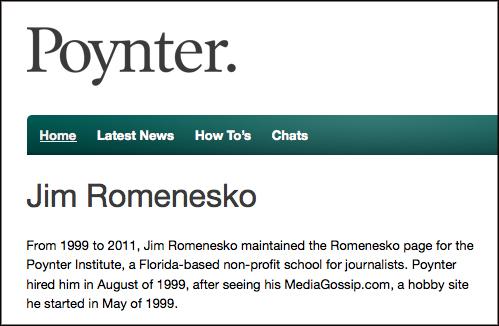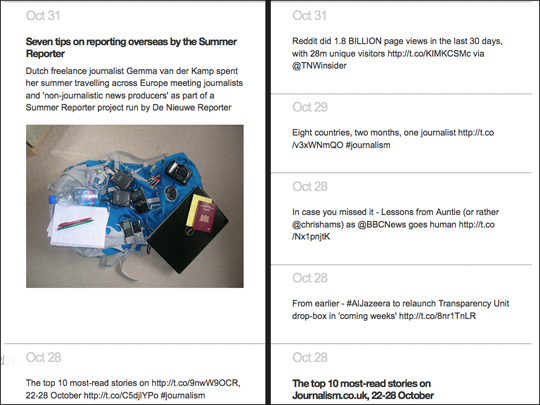
Image by Adikos on Flickr. Some rights reserved.
Danny Roberts is a sports journalism student at Leeds Trinity University College and tweets from @DannyRoberts74. In the post below and others to follow he hopes to help people, through his own experiences and those of professionals, to further their study and get that little bit closer to becoming a successful journalist.
One of the many tools available to aspiring and professional journalists alike is a blog. A blog could help you on your way to gaining a lot of writing experience, help to build an audience, make yourself known to potential employers and even possibly make some money in the process.
A blog can be defined in many ways, but is usually described as a log that is available on the web. ‘Web log’ is where the term ‘blog’ is said to originate.
So, what can a blog be about?
A blog can be about anything that the author is interested in. With the ability to add text, images, video and links, a blog can be a place where you can share your feelings, views and favourite things with the internet population. There have been previously reported cases of journalists who have credited a significant part of their job hunting success to their blogging activities. So it is a good starting point for a journalist’s portfolio to say that you have a blog that you are passionate about, update regularly and that has a big returning audience.
Who can blog and how do I go about setting one up?
Anyone can blog. That’s the beauty of the internet! As long as you have a view and are passionate about something you can blog to your heart’s content.
Many sites allow you to set up blogs but two of the main ones are WordPress and Google’s Blogger. It’s easy to set up and edit, simply enter the name of your blog and your details and you’re away.
Blogs can make money in a few ways, there is the chance that a company may pay you to maintain a high-quality blog that tells potential customers or clients about the company and its latest news. It is likely that this will be on a paid-per-post or paid-per-word basis. The other main way is through advertisements, with money made through people clicking on links at the side of the page. Google has it’s own Adsense that can be added to help you with this process.
I was lucky enough to meet Christian Payne (@documentally) who attended Leeds Trinity journalism week, as a guest speaker, a few months ago. Besides running a very popular blog, he is a freelance “mobile media maker” who also specialises in social technology and connected platforms. He jokes on his site: ‘If you don’t know what that means then it is a good reason for hiring me.’ In his work Christian helps to create multimedia and offers photojournalism, PR, imagery, video and podcasting among other things.
I emailed Christian to ask if he could help out with this blog post and he was more than happy to oblige, even though he had just had surgery. (Which of course, he blogged about!). Blogging behind the alias Documentally at Documentally.com, Christian is able to blog about his everyday life to his many followers.
For me, my blog is an interactive calling card that not only introduces people to what it is I do, it’s a place where I can nurture a community of like minded people. A social network is often built of people who share a common interest.
Describing bloggers, he added: “The content creators are the storymakers, the communicators. They can be Jack and Jills of all trades or they can specialise.”
This year, Documentally has become sponsored. His views are respected enough that Scottevest sponsors his clothing and his international mobile data is sponsored by Vodafone. This means that he receives products from companies to test out in exchange for an honest review or to test how much data a blogger uses abroad. This comes with a wide audience that companies wish their products to be advertised to in review.
To add to this, he gets paid to document, talk and run workshops. He now has a great Twitter following of almost 21,000 at the time of writing. This has helped Christian connect with many people who share his interests.
Therefore, blogging can lead to a career within itself as well as offering a platform to advertise your writing and documenting skills. Get your work out there circulating and who knows who will see it or what will happen because of it. Good luck!
There are a number of blogs, including this one, which may be of particular interest to other student journalists and offer helpful tips, examples include the BBC College of Journalism or WannabeHacks.
Feel free to recommend any other blogs which could be of use to journalists-in-training in the comments below.



